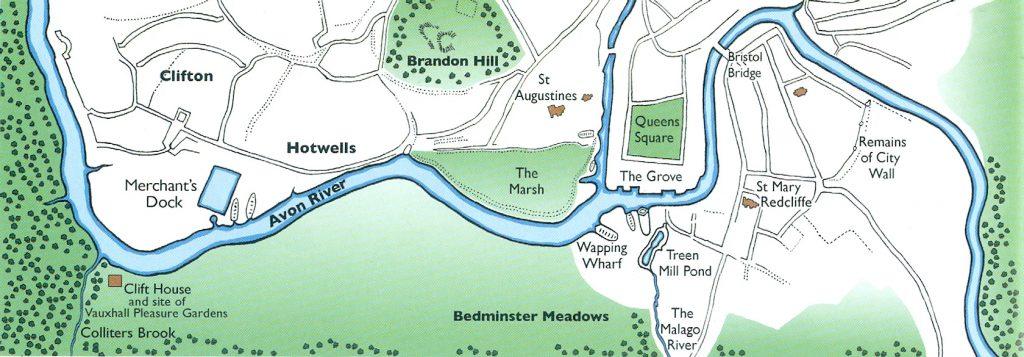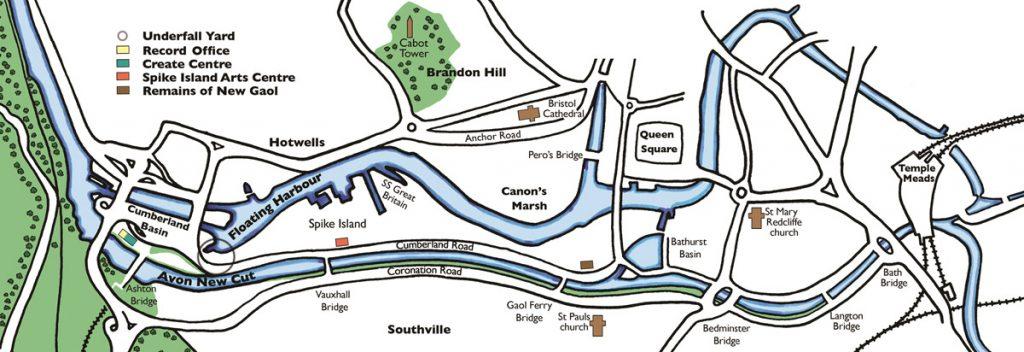Before 1804
The map below shows the course of the River Avon before the New Cut was constructed:

The Avon New Cut was excavated between 1804 and 1809 as an essential part of the development of Bristol’s Floating Harbour. Many new industries grew up along its length of almost 2 miles including Acramans Ironworks, shipyards and associated maritime industries. You can read more about the history of the New Cut in ‘A Celebration of the Avon New Cut’. Go to the Leaflets & Books page for information on how to get a copy.
Floating Harbour and the New Cut after 1809

The New Cut was also used for navigation with early passenger steam packets sailing to South Wales and Ireland from a jetty by the Louisiana pub at the entrance to Bathurst Basin.
The lower bridges – Vauxhall footbridge and the Ashton Avenue bridge – used to open to allow shipping access to the city docks via the now sealed off lock gates at Bathurst Basin.
By the late 1930s very little river traffic used the New Cut; the lower bridges were fixed and a suspension pedestrian walkway– Gaol Ferry bridge- replaced the ferry near the old Bristol Gaol.
Today
Today, almost all the industry has disappeared.
Acramans Ironworks was replaced in the mid 19th century by Bristol General Hospital. This closed in 2012 and was converted into luxury apartments. The redevelopment of the whole area reflects Bristol’s changing economy with the Floating Harbour becoming a major tourist focus.
The New Cut, now stripped of almost all industries, is a quiet tidal backwater bounded by two major road routes into the city.
Nevertheless, the New Cut remains vitally important to the function of the City Docks and the surrounding area for drainage. It has become an area noted for its flora and fauna, and deservedly gained designation as a Local Nature Reserve in 2015. (Visit Bristol’s Local Nature Reserves (pdf))
Information and interactive displays about the development and working of the Floating Harbour can be found at the fascinating Underfall Yard Visitor Centre.
